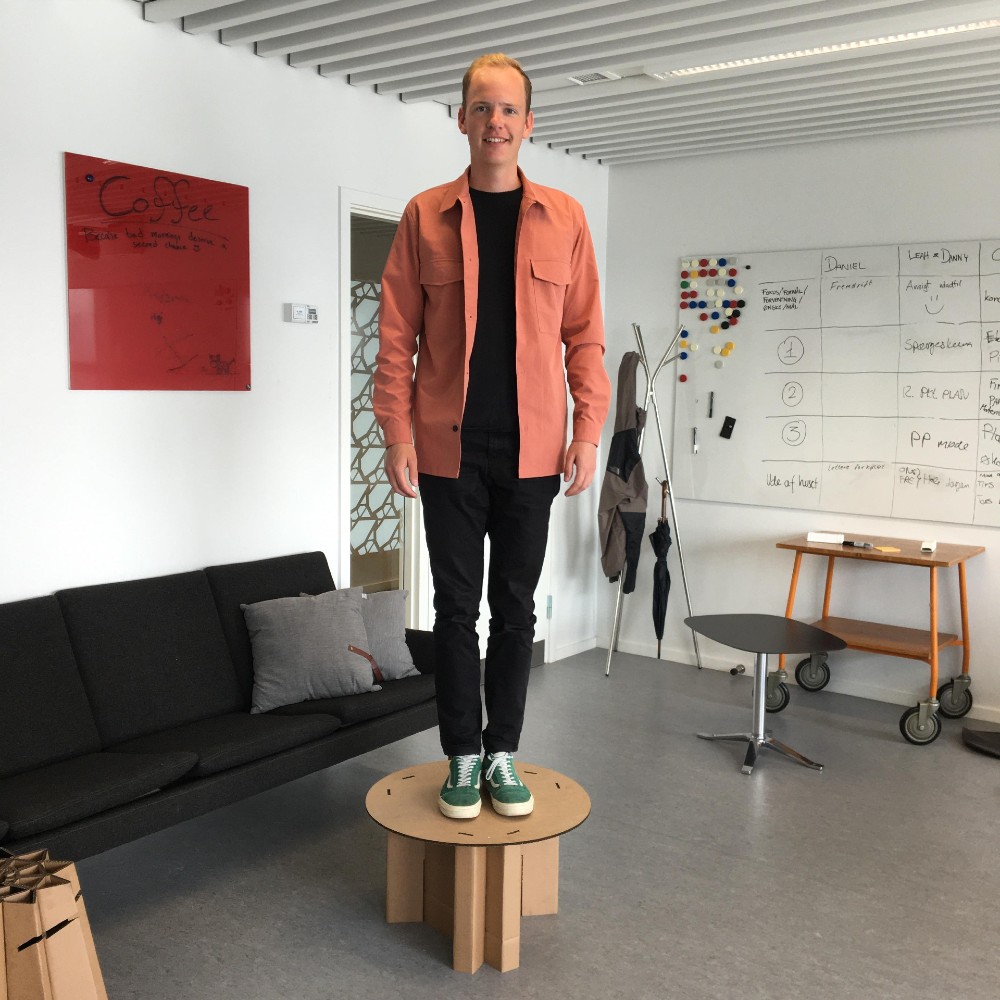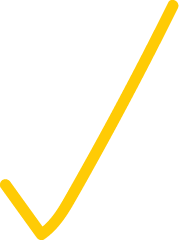Claus Conrad Lund from Rewrite Furniture
May 16, 2022
BY Nina Lyhne

Meet Claus:
-
Mechanical engineering student at Aarhus University
-
Founder of Rewrite Furniture – a cardboard furniture concept with a circular design philosophy that produces recyclable furniture with respect for the planet’s resources
-
Started working on the idea during an internship in his startup in the fall 2021
How did the idea of becoming an entrepreneur arise?
In fact, I have chosen my education because it was the closest, I could get to a title in the direction of “inventor”. For a long time, I have had an idea that I want to work with improving existing products and developing new ones. Therefore, I have often thought that the ultimate way of doing this was to become an entrepreneur and create a company where you have complete freedom to make your mark on the development. I’m probably also a little daunted by the idea of an 8-16 job, and at the same time, I’m fascinated by the idea that you can make a living working on your own ideas and interests.
How did you get started with your entrepreneurial journey?
At the engineering program, we have an internship semester. When I found out that it is possible to do an internship as an entrepreneur through Startup Factory at Navitas, I saw it as the perfect opportunity to try out startup-life at a low risk. It was a great opportunity to learn more about entrepreneurship during my studies instead of doing it after graduation at a much higher risk and cost.
I actually had several ideas on the table when I began the internship. I chose to work with this particular idea because it was relatively “easy” to go about, and I wanted to experience as much of the entrepreneurial process as possible during the internship and not get lost in product development for too long. This decision has turned out to pay off, and I’ve really been around many different steps of the process.
What has been the biggest challenge in the process?
There have been many challenges. It is a bit of a paradox, but one of my biggest challenges has been the fact that my startup and my spare time have intertwined. For some, this can be a gift, but for me, it has often resulted in a feeling of not being able to put it aside and really take time off. There are also many decisions and uncertainties associated with developing a business idea, and it can be a huge burden to handle alone. It has helped me a lot to get feedback and discuss my ideas with The Kitchen, but I would probably consider having a partner with me on future entrepreneurial projects.
What does a typical workweek look like in relation to combining your startup with
your studies?
During my internship, I worked full time on my startup idea. The tasks varied A LOT. One week, I could work a lot on my products, production and design. Other weeks, I spent a lot of time applying for grants and funding to develop my idea, and I have spent a lot of time talking to people with knowledge within my product area. This is where I have learnt the most, and it has taken me by surprise how welcoming people are and how much insight you gain when you reach out and ask for help. The current semester has been a bit atypical because I am on exchange in Norway. That’s why I’ve decided to ease the accelerator a bit and concentrate mostly on my website and social media, which I find it easier to work on from abroad.
How do you use your academic skills as an entrepreneur?
I have especially used my professional skills in the development and production of my products, where – with my background from Aarhus University – I have been able to design, draw and produce all the necessary material for production of my products. In addition, my project has benefited greatly from being able to use some of the university’s equipment to make prototypes at an early stage. During my studies, we have also worked with pretotyping and a “fail cheap” mentality, which I have really had to apply during the development of my idea.
Where is your startup today, and what are your dreams for the future?
I now have a handful of functional and finished furniture designs made from cardboard, which I am currently exploring whether there is a market for. I have just finished my website, which I use to run some online marketing tests in order to learn more about my customer segment. My plan for this project has always been to learn as much as possible, and not necessarily to start a million-dollar business. I still dream of getting the right idea together with the right partner and starting a new entrepreneurial project. For me, the early stages with focus on product development is the most appealing part of the startup process.
Your best advice for other students who are considering becoming entrepreneurs?
Take the plunge – and don’t make it a bigger deal than it actually is. If you have a good idea, why not explore it? You’re definitely going to run into a ton of hurdles, but you will also learn a lot about your idea and what it takes to be an entrepreneur. If you have the opportunity, I also recommend that you find yourself a partner. I’ve often missed having someone to share ups and downs with, and it’s just easier to keep up the motivation and momentum when you’re not working alone on the project.



